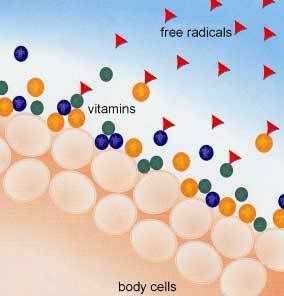 If you want to lose weight but have found that diets never work, this is the plan for you. It explains why toxic exposure can slow even the most devoted weight-watching plans, and teaches you how to beat this problem and finally get down to your desired size and shape.
If you want to lose weight but have found that diets never work, this is the plan for you. It explains why toxic exposure can slow even the most devoted weight-watching plans, and teaches you how to beat this problem and finally get down to your desired size and shape.In the eyes of most of us there are only two types of weight problem: you’re gaining it too fast or you’re losing it too slowly. According to traditional dieticians both of these have their root in the same cause: the number of calories you are taking in is more than the number you are using up. Basically this is true, but it doesn’t mean that certain factors, like toxins, can’t interfere too.
Fat Gain
Most of us know that what we eat determines whether or not we get fat, but new research is revealing that there’s more to this reaction than how many calories are in a dish. Some research explains that many of the foods we eat now contain toxins that actually promote weight gain in animals, and are likely to do this in humans too. To make matters worse, because many of these toxins appear in pesticides, they are concentrated in foods that we would use to lose weight, such as salad crops, soft fruits and other fruits and vegetables; even if you eat organic, you can be exposed to these toxins from insecticides and other household products.
Fat-Burning Inhibitors
It’s not just major toxins that cause problems with weight gain. Relatively harmless toxins like caffeine or alcohol also play a role, because they destroy the vital nutrients we need to burn fat. Recent research from the University of Tennessee, USA found that the more calcium there was in a diet the more fat the body burned, since calcium has the power to convert cells from fat storers into fat burners. Caffeine, however, actually causes us to excrete calcium, taking out 6mg from our stores with every cup of coffee we drink.
 Free radicals produced when toxins enter the body, or are processed, can also remove vital fat-burning nutrients. Research published in the European Journal of Clinical Nutrition showed that 58 percent of overweight women were deficient in vitamin C (one of the major free radical fighting antioxidants); and in trials where overweight women were given supplements of vitamin C they lost weight even without dieting. Deficiencies in another antioxidant, vitamin E, are also linked to excess weight, and, again, this could be linked to toxic overload.
Free radicals produced when toxins enter the body, or are processed, can also remove vital fat-burning nutrients. Research published in the European Journal of Clinical Nutrition showed that 58 percent of overweight women were deficient in vitamin C (one of the major free radical fighting antioxidants); and in trials where overweight women were given supplements of vitamin C they lost weight even without dieting. Deficiencies in another antioxidant, vitamin E, are also linked to excess weight, and, again, this could be linked to toxic overload.Magnesium is important for fat-burning, and it is destroyed by stress – a toxin that causes problems in other ways since it increases levels of a hormone called cortisol. Not only does cortisol stimulate your appetite, but it also encourages fat cells in the abdominal area to start collecting calories to store as fat.
Fluid Retention
 Toxins can also interfere with your ability to lose weight because you have gained not fat but fluid. Unprocessed toxins are stored in the fat if the liver can’t handle them; stored with them, however, are large amounts of water. The reason for this, according to one nutritionist, is that the body’s ‘solution to pollution is dilution’. This means that if the body thinks that something is harmful it will surround it with water to try to minimize its strength and efficacy. If you’re storing high levels of toxins in your body, therefore, you’re probably also carrying high levels of fluid. If this is the case, no amount of fat-burning will reduce your weight.
Toxins can also interfere with your ability to lose weight because you have gained not fat but fluid. Unprocessed toxins are stored in the fat if the liver can’t handle them; stored with them, however, are large amounts of water. The reason for this, according to one nutritionist, is that the body’s ‘solution to pollution is dilution’. This means that if the body thinks that something is harmful it will surround it with water to try to minimize its strength and efficacy. If you’re storing high levels of toxins in your body, therefore, you’re probably also carrying high levels of fluid. If this is the case, no amount of fat-burning will reduce your weight.In some people, this reaction occurs for another reason: food intolerances. These arise when the body loses the ability to digest a particular type of food properly. This means that the food stays in the system longer than it should and it ferments, filling the body with substances that it finds toxic. The body then tries to dilute these ‘poisons’ by flooding them with water.









0 comments:
Post a Comment